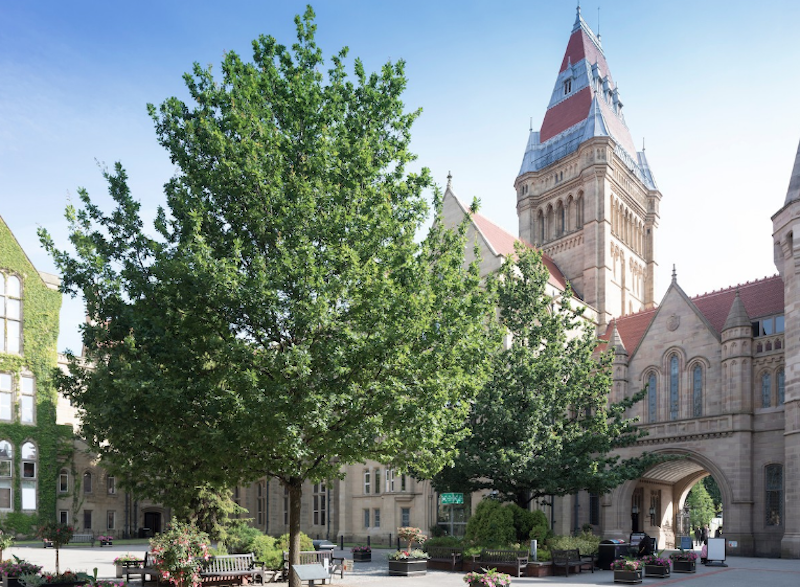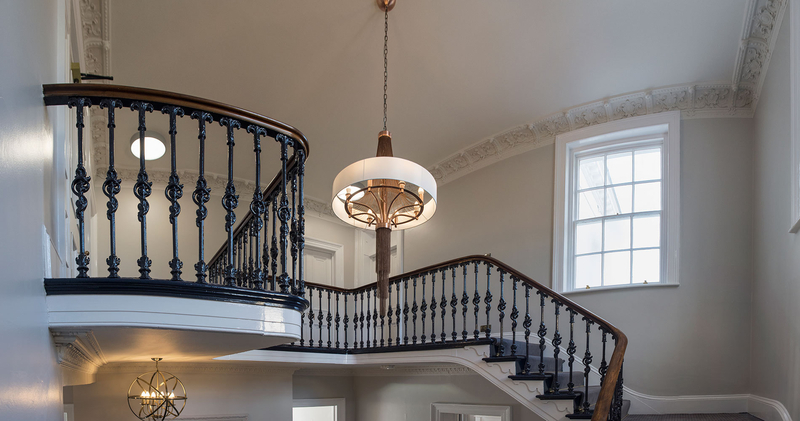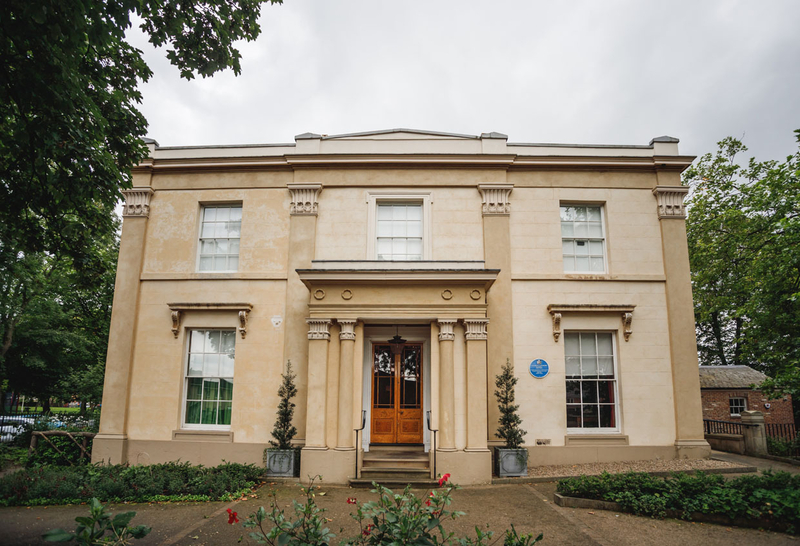Jonathan Schofield on the University's management of its legacy
Satire meets parody meets bathos. Earlier this month Chancellors Hotel, a University of Manchester operation in Fallowfield, won the sustainability award at Manchester Food and Drink Festival Gala Dinner.
Judges were looking for venues that pride themselves on ‘good food for the people and the planet’ as well as sustainable day-to-day practices and team engagement. Fiona Lockyer, General Manager of Chancellors Hotel said: “This award is testament to the continued hard work that the team do to provide great quality food and drink in-keeping with the University’s sustainable footprint”.
The conversion was done with all the panache of the Britannia Hotel group
Shame then, Chancellors can’t sustain itself beyond 2nd December.
This once superb example of a suburban Mancunian mansion from 1850 is be ripped apart again to provide student accommodation, with 64 catered en-suite rooms, a study space and a cafe. We need to keep an eye out for any extraneous flim-flam tat that might be added as extensions.
You see the problem is this. Chancellors is not any old place or other; it is one that speaks to the very heart of the liberal, free-thinking city we have been and should always aim to be. So far there has been little noise about the incredible significance of this building. More of that later.
First, the conundrum. This is a problem with the University of Manchester. We love it. The city would be much reduced without its Russell Group Uni status, its association with 25 Nobel laureates, its internationalism, its splendid recent work in delivering beautiful landscaping.
Put simply, the University of Manchester with its 40,000 students merges tradition, achievement and civic responsibility to great effect, creating an effervescent present that points to an improving future. True, the morale of the academics needs to be improved by rewarding them adequately for their commitment and talent, but the place the University holds in Manchester life is irrefutable.

Yet, sometimes the institution can’t see the wood for the trees. As a university priding itself on a very impressive world ranking of 29th it can be blithe with its heritage. When the former house of Chancellors was converted into a hotel and conference centre in the 1990s, it was done with all the panache of a Britannia Hotel group conversion: maybe the Britannia Group were the consultants. The materials used were cheap, the architectural intrusions to the east crass, the carpets from an off-cuts sale and the food and drink canteen standard rather than ‘great quality’.
I was there earlier this year and, in a city region with over 80 big and little breweries, there was not a single representative. The menu would have made a Premier Inn embarrassed. There was nothing to show the university was proud of its home city and region. In the bar the word ‘tariff’ was spelt ‘tarrif’, it wasn’t the only spelling mistake. So much for Russell Group status. One has to say, the staff were lovely, so no blame should attach to them, for having to work in such budget surroundings.
In short the building has been mutilated by the university. This has happened many times previously with, for instance, the Gaskell House (our story here). The latter is out of university control and has come good, owned by The Manchester Historic Buildings Trust. The gorgeous Christie’s Bistro in the main university block on Oxford Road looks the part but serves slop and never opens at times anybody but hungry academics might choose.
That can be remedied if the will is there. It's too late for Chancellors and that's the shame of it. In some respects whatever the university does with Chancellors doesn’t matter anymore given what they have already allowed to happen. Only the stairwell retains any grace.

So what’s the deal with Chancellors?
Well, this isn’t any old suburban villa. This was built as house in 1851 for Sir Joseph Whitworth, the father of global precision engineering and a major philanthropist, whose money provided the city with (amongst other things) Whitworth Park, Whitworth Art Gallery and the Whitworth Hall at - guess where? – the University of Manchester. The Whitworth Hall is the university's showpiece interior.
The house was designed by Edward Walters who designed the Free Trade Hall. Whitworth passed it on to Charles Prestwich Scott, the editor of the Manchester Guardian, for 57 years, and the man who turned the paper into a global name. These are two major British figures by any measure.
It’s an incredible heritage in one building, especially when you think Whitworth and Scott hosted all the greats of nineteenth and early twentieth century British history in those rooms.
The university could have utilised this heritage, particularly that of the Manchester Guardian, now the Guardian. The world of the media has never been so fractured as in 2019, its reputation has never been so low, the words 'fake news' hang over it like the scythe of the Grim Reaper. Given there are conference and lecture facilities in Chancellors, a transformation into a high-level, perhaps post-graduate, study and research centre, into how information is and might be disseminated in the future, seems relevant and apt.

Or maybe the key, as with The Gaskell House, is to let go of the property, let someone else take over, so the university can concentrate on its core work. It's not hard to envisage a good private company turning Chancellors into a lovely boutique hotel with five acres of garden.
The university has said: ‘The hotel has been operating in an increasingly competitive market in and around the city and has particular challenges due to its location.’ These problems could have been addressed if Chancellors hadn’t been so cheaply redeveloped and redesigned, and the food and drink quality had been better. Failure was built in, failure was inevitable. If £105m could be found for the Henry Royce Institute then couldn't a little have been spared to boost Chancellors, or convert it to something more imaginative than student accommodation?














